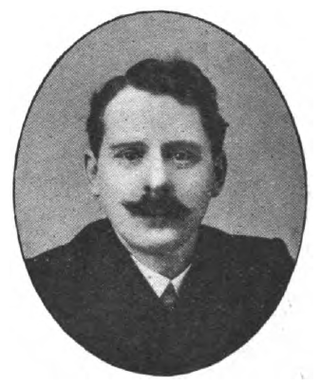Top Qs
Timeline
Chat
Perspective
Darlington (UK Parliament constituency)
Parliamentary constituency in the United Kingdom, 1868 onwards From Wikipedia, the free encyclopedia
Remove ads
Darlington is the parliamentary constituency for the eponymous market town in County Durham in the North East of England. It is currently represented in the House of Commons of the UK Parliament by Lola McEvoy of the Labour Party, who was first elected in 2024.[n 1]
The constituency was created for the 1868 election.[2]
Remove ads
Constituency profile
The constituency is tightly drawn around the Darlington urban boundary, and is slightly less wealthy and more deprived than the UK average figures.[3]
Boundaries
Summarize
Perspective
1868–1885
Under the Reform Act 1867, the proposed contents of the new parliamentary borough were defined as the townships of Darlington, Haughton-le-Skerne, and Cockerton.[2] However, this was amended under the Boundary Act 1868, with the boundary defined as being coterminous with the Municipal Borough of Darlington.[4]
See map on Vision of Britain website.[5]
1885–1918
As defined in 1868 with minor amendments.[6]
1918–1983
The County Borough of Darlington.[7]
The boundaries were adjusted in 1918, 1950 and 1973 to reflect changes to the boundaries of the county borough.
1983–2010
The Borough of Darlington wards of Bank Top, Central, Cockerton East, Cockerton West, college, Eastbourne North, Eastbourne South, Harrowgate Hill, Haughton East, Haughton West, Hummersknott, Lascelles, Lingfield, Mowden, Northgate North, Northgate South, North Road, Park East, Park West, and Pierremont.[8][9]
No change to boundaries.
2010–2024
The Borough of Darlington wards of Bank Top, Central, Cockerton East, Cockerton West, College, Eastbourne, Faverdale, Harrowgate Hill, Haughton East, Haughton North, Haughton West, Hummersknott, Lascelles, Lingfield, Mowden, Northgate, North Road, Park East, Park West, and Pierremont.[10]
Minor change to reflect new ward boundaries.
2024–present
Following the 2023 periodic review of Westminster constituencies, enacted by the Parliamentary Constituencies Order 2023, from the 2024 general election, the constituency comprises the following:
The Borough of Darlington wards of: Bank Top & Lascelles; Brinkburn & Faverdale; Cockerton; College; Eastbourne; Harrowgate Hill; Haughton & Springfield; Heighington & Coniscliffe; Hummersknott; Mowden; North Road; Northgate; Park East; Park West; Pierremont; Red Hall & Lingfield; Stephenson; Whinfield.[11]
The constituency was expanded slightly to bring the electorate within the permitted range, by adding the rural ward of Heighington & Coniscliffe from the abolished constituency of Sedgefield.
Remove ads
Political history
The seat has been held by all three major parties in its long existence, but has been a marginal constituency between the Labour and Conservative parties in the years since the Second World War. Labour held the seat for 27 years from 1992 with their candidate Jenny Chapman winning the seat in 2010 with a 3,388 majority down from 10,404 in the previous election. In 2015, her majority over the Conservatives fell to 3,158. In the 2019 general election Conservative Peter Gibson defeated Chapman with a 3,294 majority before being defeated himself in 2024 by Lola McEvoy of Labour by a margin of 2,298
Members of Parliament
Remove ads
Elections
Summarize
Perspective

Elections in the 2020s
Elections in the 2010s
In the 2015 election, 89 ballot papers were issued omitting the UKIP candidate before the error was corrected.[24]
Elections in the 2000s
Elections in the 1990s
Elections in the 1980s
Elections in the 1970s
Elections in the 1960s
Elections in the 1950s
Election in the 1940s
Elections in the 1930s
Elections in the 1920s
Remove ads
Election results 1868–1918
Summarize
Perspective
Elections in the 1860s
Elections in the 1870s
Elections in the 1880s

Elections in the 1890s

Pease's death causes a by-election.

Elections in the 1900s

Elections in the 1910s



General Election 1914–15:
Another General Election was required to take place before the end of 1915. The political parties had been making preparations for an election to take place and by July 1914, the following candidates had been selected;
- Unionist: Herbert Pease
- Liberal: Alfred Scott[48]
- Labour: T. Russell Williams
Remove ads
See also
Notes
- As with all constituencies, the constituency elects one Member of Parliament (MP) by the first past the post system of election at least every five years.
References
External links
Wikiwand - on
Seamless Wikipedia browsing. On steroids.
Remove ads



